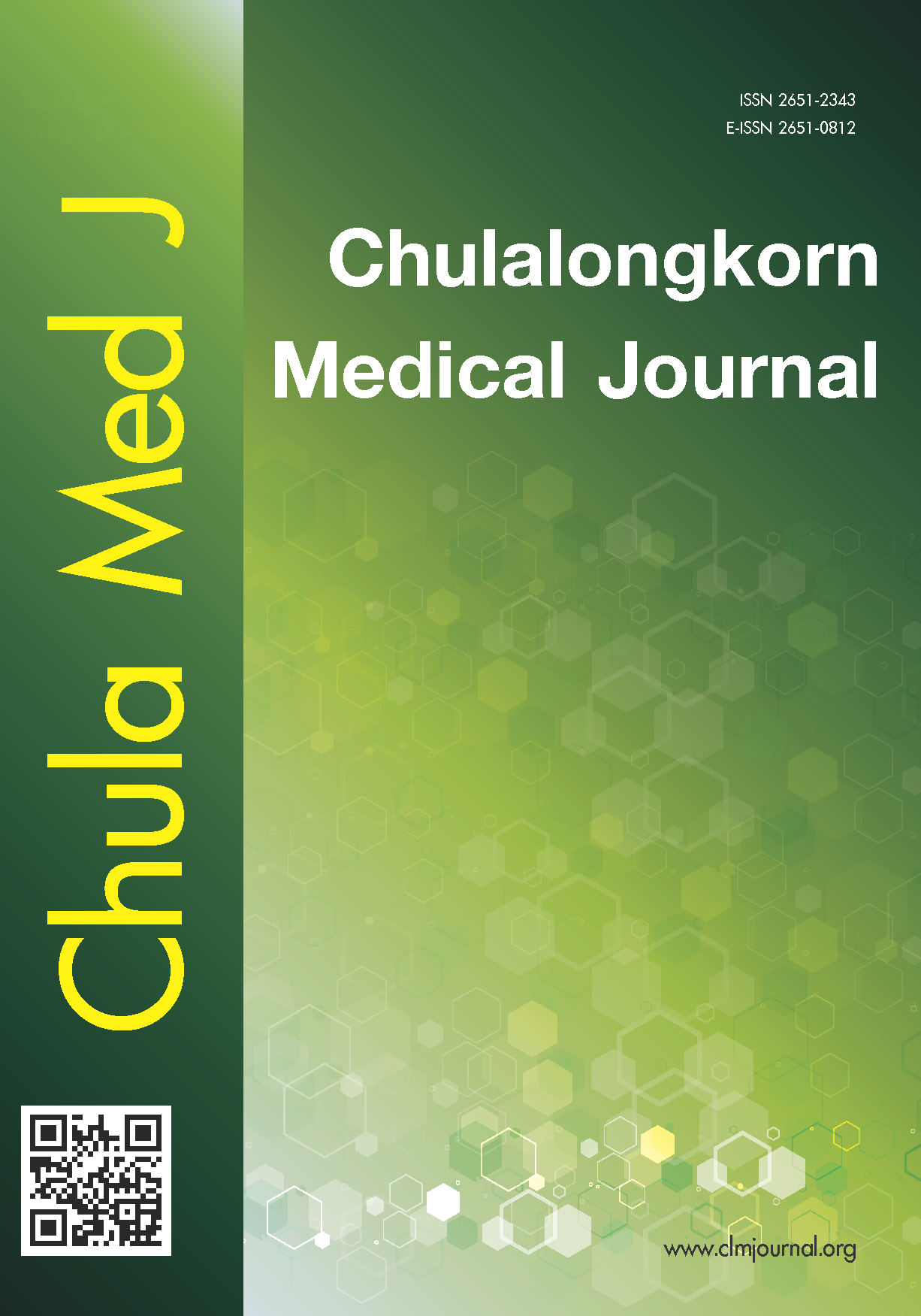Impact of shift work on sleep quality among nursing staff
Main Article Content
Abstract
Background: Shift work is common among nurses because health care is the industry that covers 24 hours
a day, 7 days a week. How a healthcare organization alters staffing patterns to reduce fatigue among nursing staff
is challenging. This study aimed to understand whether poor sleep quality persisted in nursing staff who did
shift work and whether there were any specific risk factors for poor sleep quality among nursing staff. The study
used a validated tool called the Pittsburgh Sleep Quality Index (PSQI) in Thai version for sleep quality assessment.
Methods: This study was a cross-sectional study. Semi-structured questionnaires were used to interview nursing staff who were currently employed at a large tertiary-care hospital in Bangkok, Thailand between January 2016 and January 2017. Associations between sleep quality and independent variables based on demographic data, shift work status, and work patterns were investigated. Sleep quality was measured using the Thai version of Pittsburgh Sleep Quality Index.
Results: A total of 2,765 nurses participated; the response rate was 86.5%. The prevalence of poor sleep quality (PSQI > 5) in shift working nurses was 67.6%. The prevalence of poor sleep quality in non-shift working nurses was 32.4%. After adjusting for other potential confounders, poor sleep quality was significantly associated with shift working nurses compared with non-shift working nurses, adjusted odds ratio (aOR) = 1.369, P < 0.001
(95% CI 1.270 – 1.479). Having at least one medical condition (aOR = 1.229; 95% CI 1.026 - 1.473), decreased total
number of years worked as a nurse (aOR = 0.985; 95% CI 0.978 - 0.993), increased number of working hours a day
(aOR = 1.061; 95% CI 1.033 - 1.090), and decreased number of vacation days a week (aOR = 0.881; 95% CI 0.780 -
0.995) were more likely to have poor sleep quality among nursing staff.
Conclusions: Doing shift work, long working hours, having decreased number of vacation days a week, and having at least one medical condition have been found to be associated with poor sleep quality among nursing staff. Understanding these variables can assist managers/ policy makers to consider the risks of shift work among nursing staff and arrange shiftwork schedules accordingly.
